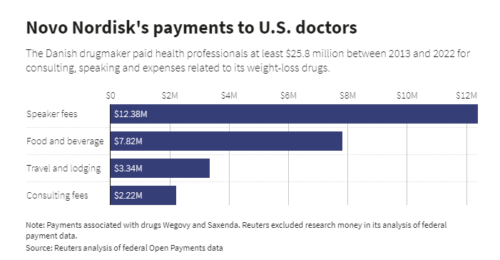Industry-funded study of the week: Et tu saffron?
I learned about this one from NutraIngredients-Europe:
The ‘promising’ role of saffron in stress resilience: New research conducted in partnership with botanical product manufacturer Pharmactive reveals that its standardized saffron extract Affron was able to normalise HPA [hypothalamic-pituitary-adrenal] axis dysregulation following chronic mild stress stimulation in a rat model…. Read more
I thought this was worth a closer look and went right to the paper.
Effects of Saffron Extract (Affron®) with 100 mg/kg and 200 mg/kg on Hypothalamic–Pituitary–Adrenal Axis and Stress Resilience in Chronic Mild Stress-Induced Depression in Wistar Rats. Nutrients 2023, 15(23), 4855; https://doi.org/10.3390/nu15234855
Conclusion: These findings elucidate AFN’s [Affron®] role in stress mitigation, affirm its health benefits, validate its potential as a treatment for stress-related symptoms, confirm its physiological effectiveness, and emphasize its therapeutic promise.
Guess who generated and conducted this study.
Conflict of interest statement: For commercial affiliations, J.K. and S.Y. were employed by the company iCONNECTOME Co., Ltd., which had the roles of curation, formal analysis, and visualization in this study; S.-S.Y. was employed by the company iCONNECTOME Co.,Ltd., which had the roles of conceptualization, funding acquisition, investigation, supervision, review and editing in this study; M.-Y.K. and J.S. were employed by the company Hyundai Bioland Co.,Ltd., which had the roles of methodology and/or writing original draft in this study; M.I.M.-V. was employed by the company Pharmactive Biotech S.L.U., which had the role of investigation in this study. The remaining authors declare that the research was conducted in the absence of any commercial or financial relationships that could be construed as a potential conflict of interest.
In case you wondered, Pharmactive Biotech makes Affron. The other enterprises do the studies.
Who paid for this?
Funding: This research was funded by Hyundai Bioland Co., Ltd., grant number IC22_02, and Soonchunhyang University Research Fund. Hyundai Bioland Co., Ltd. had the following involvement with the study: participating in the research Investigation, and paid all costs for editing and publishing the Paper. The funder was not involved in the study design, collection, analysis, interpretation of data, the writing of this article or the decision to submit it for publication.
Comment: Huh? I often suspect that the statement “the funder was not involved….” may not accurately represent the funder’s involvement (to put the matter politely). In this case, the role of Hyundai Bioland is self-contradictory. Its employee-authors say they determined the study’s methods and/or wrote the paper, and the funder says it participated in the research but had no involvement in the study design, etc. This is confusing, if not contradictory.
I do have to say something about marketing saffron as a superfood. Saffron consists of the stigmas of crocus flowers, and these are hugely expensive. Walmart is selling 2 grams for $42.
The Wikipedia entry iexplains why.
The high retail value of saffron is maintained on world markets because of labour-intensive harvesting methods, which require some 440,000 hand-picked saffron stigmas per kilogram…150,000 crocus flowers per kilogram…Forty hours of labour are needed to pick 150,000 flowers…One freshly picked crocus flower yields on average 30 mg of fresh saffron or 7 mg dried; roughly 150 flowers yield 1 g (1⁄32 oz) of dry saffron threads.
Once again, we have here an industry-funded marketing study pretending to be science. But really, saffron? OK, an extract that maybe can be synthesized, but still. There have to be easier and less expensive ways to reduce stress and depression in rats.
Oh. And in case you were wondering how scientists determine whether rats are depressed?
Our previous animal behavioral assays assessing anxiety and depression, including the elevated plus maze, forced swim, and sucrose preference tests, have revealed that AFN-treated animals (200 mg/kg) exhibit behaviors indicative of anhedonia and depression mitigation [27]. For example, increased consumption of sugar solutions and improved specific escape responses have been observed in forced swim tests.
Ref 27 is: Orio, L.; Alen, F.; Ballesta, A.; Martin, R.; Gomez de Heras, R. Antianhedonic and Antidepressant Effects of Affron®, a Standardized Saffron (Crocus sativus L.) Extract. Molecules 2020, 25, 3207. [Google Scholar]


